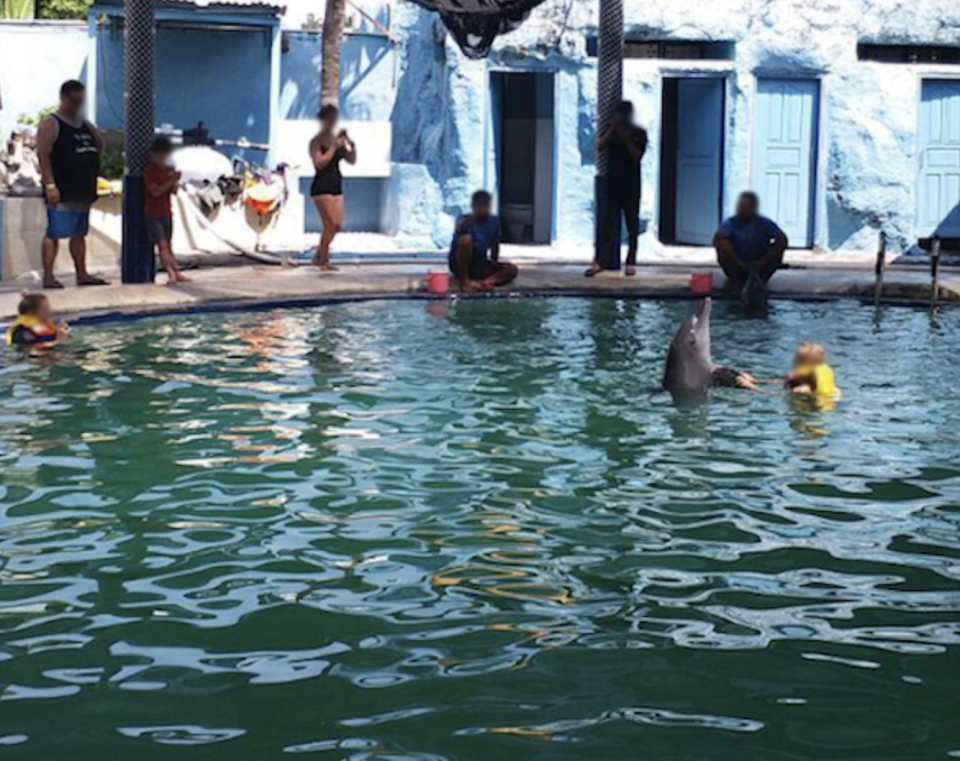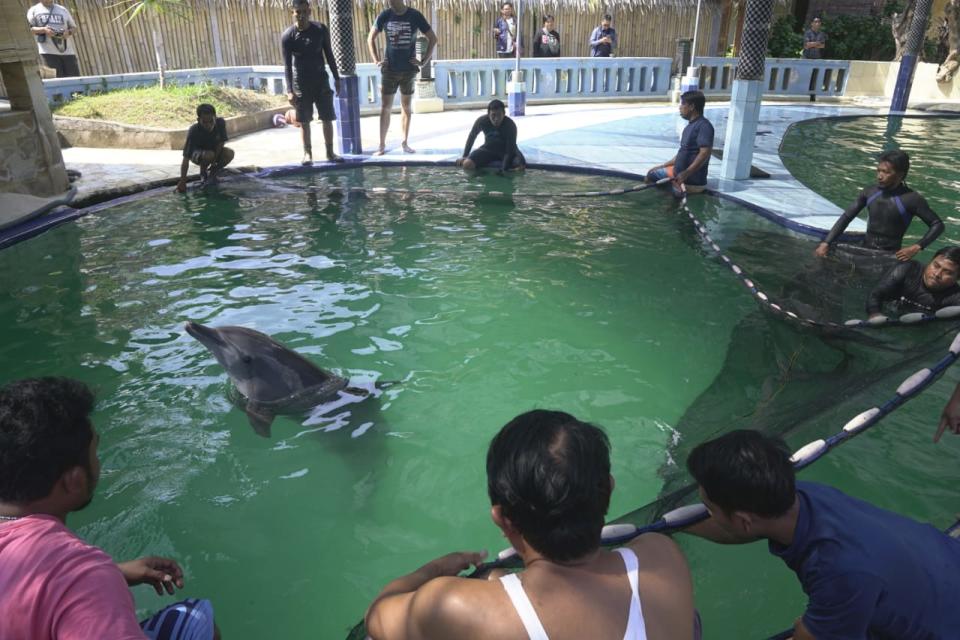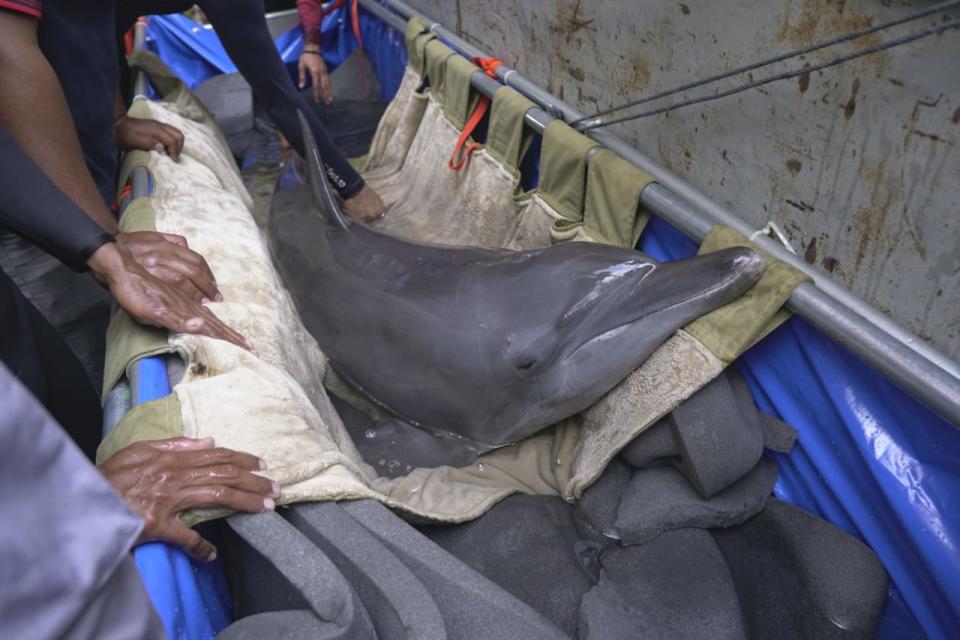How wildlife authorities raided a Bali hotel to rescue dolphins from concrete enclosure
A Balinese hotel has been raided by Indonesian government officials in response to criticism over its concrete dolphin enclosures.
Former US dolphin trainer Ric O’Barry was deep undercover in Lovina, north Bali, when he first spoke to Yahoo News Australia.
He was on a mission to free dolphins – a plan he had been devising for 10 years.
“A tank puts dolphins into sensory deprivation,” Mr O’Barry said.
“Their primary sense is sound, our primary sense is light - we’re visually orientated.
“When you place them into a swimming pool you deprive them of the two most important things in life – the world of sound and their family.”

Planning the raid
Mr O’Barry was once the head animal handler on the 1960s television show Flipper, but now he is a committed activist trying to undo the show’s legacy – the popularity of captive dolphin enclosures.
Earlier in the week, the details were sketchy, but now the full story of his mission in Bali can be revealed.

A team from Ric O’Barry’s Dolphin Project were working alongside Indonesian authorities to remove dolphins from what were described as “deplorable conditions” at Melka Excelsior Hotel.
The hotel itself advertises “great holiday fun and a very interesting animal theme park” and its believed to cater mostly to Russian tourists.
Five dolphins were being kept in small chlorinated concrete tanks, separated by a wall, where they were “manhandled by tourists” during “therapy sessions” and forced to perform tricks.

“The hotel has more than one pool, so they could hear each other all this time, like two prisoners, but they couldn’t actually be together,” he said.
Along with the dolphins, orders were issued for the removal of three crocodiles, two leaf monkeys, as well as birds, snakes and porcupines.
The plan was to ship the dolphins out in trucks so they live out their retirement in saltwater sanctuaries, so they could once again experience the ocean.

The mission suffers a setback
At 79 years of age, Mr O’Barry has seen other planned raids in Southeast Asia halted by authorities at the last minute.
“It’s very difficult to do politically, to get permits to do these kinds of things,” he said.
“And then you have the captivity industry fighting back to make sure sanctuaries don’t happen,”
“They lobby governments to make sure you don’t get permits.”
On August 4, the day before the raid, devastating news came through - one of the dolphins had died.
Mr O’Barry understands the dolphin was quickly buried, so he is not confident its cause of death will be determined.
Indonesian authorities back the Bali raid
At noon on August 5, Mr O’Barry arrived, backed by the Central Jakarta Forestry Department, who regulate the Indonesian dolphin industry, the Bali Police Department and Jakarta Animal Aid Network (JAAN).

Over four hours, the team worked tirelessly to remove two of the dolphins, Rambo and Rocky, from their pens and then trucked them five hours to temporary seawater pens at Dolphin Lodge Bali.
“It’s a pretty exhausting thing moving dolphins around,” Mr O’Barry said.
“But, I’m actually doing very, very well,” he said.
At nine o’clock that night, the dolphins felt saltwater on their skin again for the first time in over a decade.
Distressing photos show whales in 'ridiculously small tank' at aquarium
'It stunk like road kill': Man's tragic find after pulling in 'illegal' trap from river
Dolphins return to the ocean
The following morning, Mr O’Barry woke up early and headed back to the pool.
“I could imagine what they were experiencing, seeing,” he said.
“There are a lot of little fish in the sea pen, seaweed, fish,
“It’s a real world - It’s like being in a black and white dungeon and all of a sudden you’re waking up in technicolour nature.”
It is unclear whether the dolphins are too damaged for release, but the Ric O’Barry Dolphin Project team are now investigating a retirement home for the four surviving animals.
“They’ll never be in a tank again, a tank is totally unnatural.”
“I’ve been doing this work for 50 years and I’ve probably had 50 good days,
“This is one of those days.”

Mr O’Barry plans to return to the Melka Excelsior Hotel later in the month with Indonesian authorities to free the remaining two dolphins.
The Melka Excelsior Hotel declined to comment for this story.
Do you have a story tip? Email: newsroomau@yahoonews.com.
You can also follow us on Facebook, download the Yahoo News app from iTunes or Google Play and stay up to date with the latest news with Yahoo’s daily newsletter. Sign up here.



